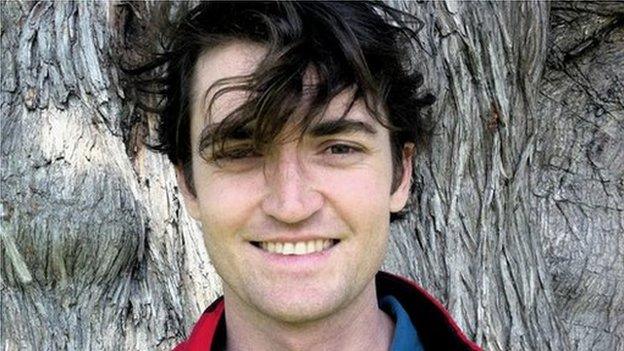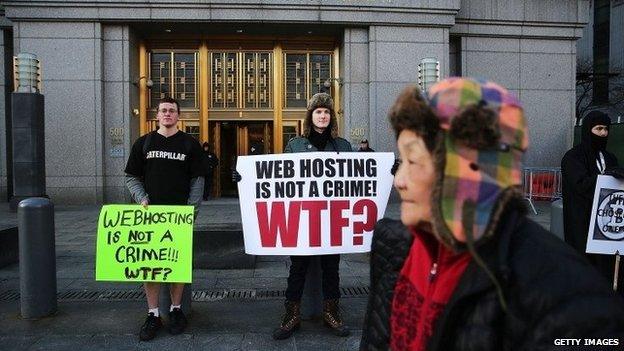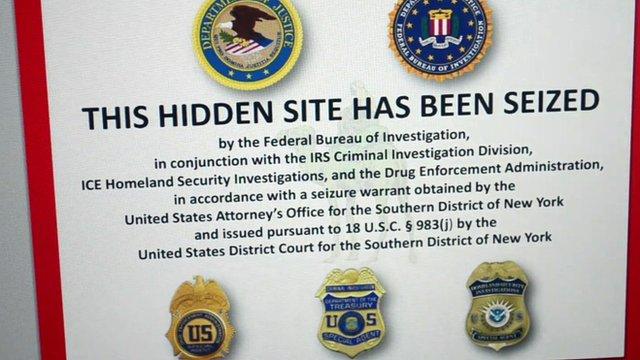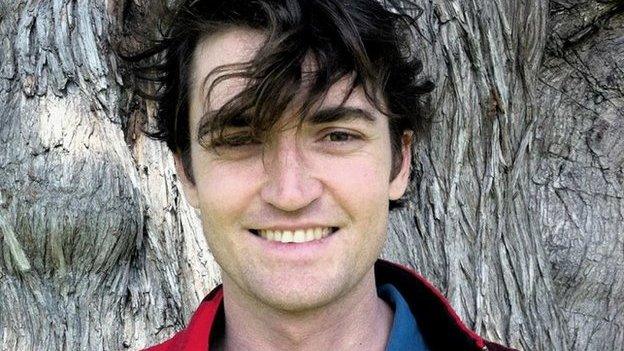Silk Road drug website founder Ross Ulbricht jailed
- Published

Ulbricht was given two life sentences
The founder of online illegal drug marketplace the Silk Road has been sentenced to life in prison in the US.
Federal prosecutors said Ross Ulbricht's website, hosted on the hidden "dark web", sold more than $200m (£131m) worth of drugs anonymously.
The 31-year-old was found guilty in New York of charges including conspiracy to commit drug trafficking, money laundering and computer hacking.
The site was shut down in 2013 after police arrested Ulbricht.
In February he was convicted of operating the site for nearly three years from 2011.

What was the Silk Road?

The Silk Road took its name from the historic trade routes spanning Europe, Asia and parts of Africa.
It achieved notoriety through media reports and online chatter. But users could only access the site through Tor - a system that lets people use the web without revealing who they are or which country they are in.
Tor was created by the US government to help provide activists with anonymity but is now often used to mask illegal transactions.
Illegal drugs such as heroin could be bought on the Silk Road using the virtual currency Bitcoin, which is also hard to monitor, but the site also offered other products such as hacking equipment and stolen passports.
Court documents from the FBI said the site had just under a million registered users, but investigators said they did not know how many were active.

'Carefully planned'
Sentencing Ulbricht - who has two college degrees - District Judge Katherine Forrest said he was "no better a person than any other drug dealer".
She said the site had been his "carefully planned life's work".
"There must be no doubt that lawlessness will not be tolerated," she added.

Prosecutors argued Ross Ulbricht would do anything to protect Silk Road
Ulbricht had expressed remorse and had written to the judge begging to not receive a life sentence.
"I know you must take away my middle years," he wrote, "but please leave me my old age."
Before the sentence was announced, Ulbricht told the judge he was not greedy.
"I've essentially ruined my life and broken the hearts of every member of my family and my closest friends,'' he said. "I'm not a self-centred sociopathic person that was trying to express some inner badness. I do love freedom. It's been devastating to lose it.''
But the judge said the sentence would show copycats there are "very serious consequences".
Ulbricht's lawyer said he was "disappointed tremendously''.
Digital footprint
The Silk Road was only accessible on the dark web, a part of the internet that requires specialist software to access.

Ulbricht's supporters maintained his innocence
Users of the site used online currency Bitcoin to purchase drugs such as heroin, cocaine and LSD.
Prosecutors say that six people who died from overdoses bought drugs via the site and that such untraceable deals earned Ulbricht at least $18m.
In the months leading up to Ulbricht's arrest at a public library in San Francisco in 2013, investigators undertook a painstaking process of piecing together his digital footprint, according to court documents.
The search started with work from "Agent-1" who went through pages dating back to January 2011.
He found a post titled "Anonymous market online?", in which a user nicknamed Altoid started publicising the Silk Road.
Records found the blog had been set up by an anonymous user who had hidden their location. But Altoid also appeared in a discussion site about virtual currency, bitcointalk.org.
Months later, in October, Altoid appeared again - but made a slip-up. In a post seeking an IT expert with knowledge of Bitcoin, he asked people to contact him via rossulbricht@gmail.com.
- Published30 March 2015

- Published3 October 2013

- Published5 February 2015
